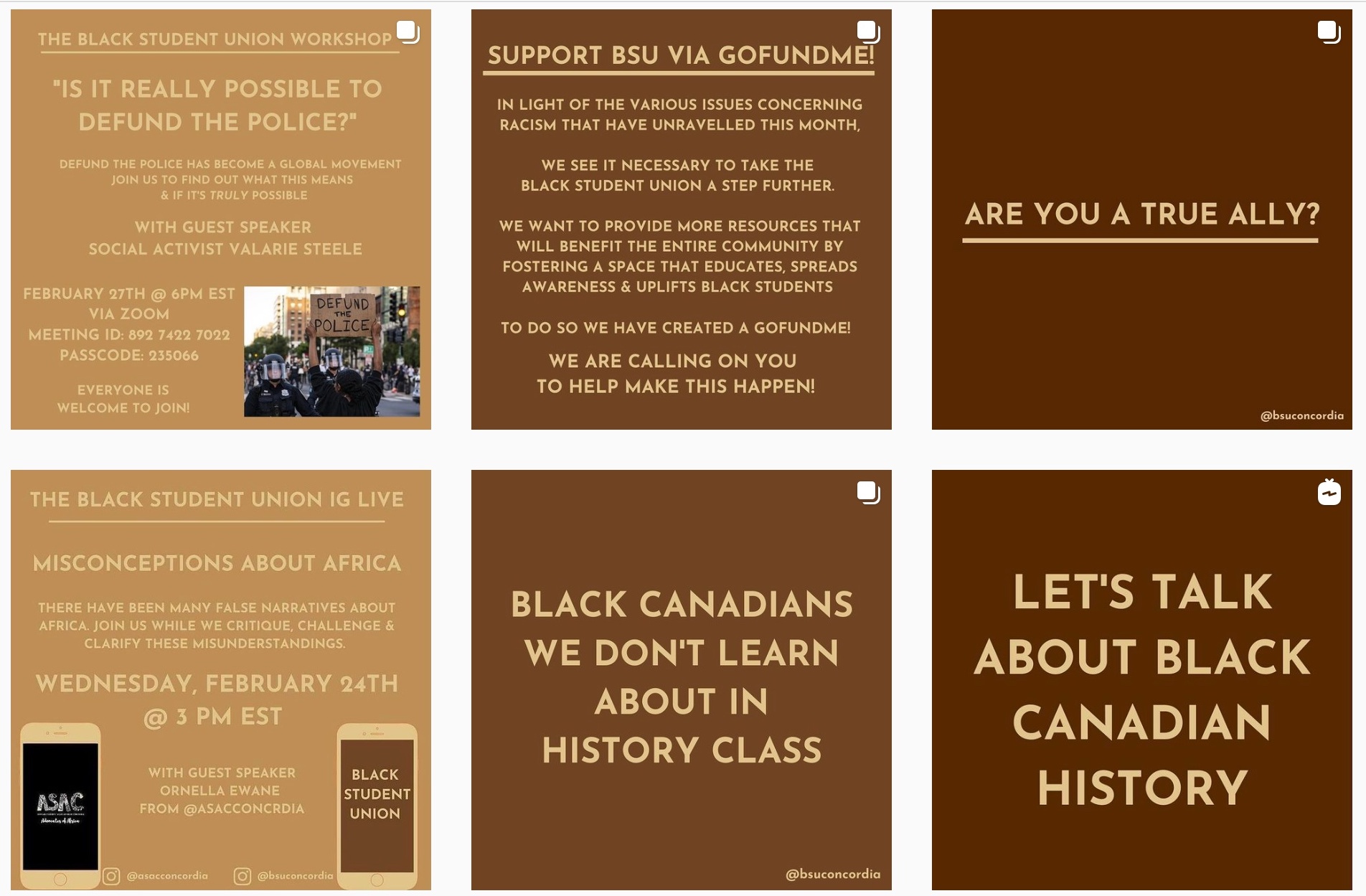How four young women started the organization
Concordia students Amaria Phillips, Lorry Joseph, Tanou Bah and Ernithe Edmond were all shocked to see there was no Black club or union at Concordia University.
“We were like, ‘Wait a minute, there’s no actual like, Black club?’ It’s either Caribbean or African? But there’s not one for just Black people,” said Phillips.
For example, McGill, the other anglophone university in Montreal, does have a Black Student Network, which acts similarly to a union. Before the BSU initiative, this overarching support would fall under the Concordia Student Union’s responsibilities.
Phillips said, “We realized that, really, there was no Black Student Union period, then we kind of like changed our minds and we said, ‘Okay, let’s just do a Black Student Union’ … It’s going to be something that’s actually going to advocate for students.”
“We kind of found a good batch of people to help the BSU take off … We’re so like-minded,” said Phillips.
The process of becoming an official student union at Concordia is a complicated one.
“We put a lot of focus in establishing [the BSU],” said Phillips. Tired of wasting time trying to establish themselves, the BSU decided to create its own path for representation.
Now, almost a year later, they have grown their team to 13 students who help run the day-to-day operations, just by asking who wanted to be involved.
“We put something on social media to ask if anyone wants to join the team. And yeah, a lot of people were DM’ing back and saying ‘Yeah, I’m interested,’” said Phillips.
The BSU’s main platform is their social media — mainly Instagram. Run by Kyla Renee Jallow and Beza Getachew, the BSU is able to spread awareness on Black issues and educate their followers on Black Canadian History.
Phillips is excited to see the growth that comes along with the bigger team. She said, “Since we decided to start the executive team, our Instagram grew from, I think five hundred to now nine hundred something in a month.”
The increase in posts also helped grow their following. On the heels of Black History Month, Phillips does not plan to slow down the flow of information shared on the page. She said, “We’ve gotten so many messages of people saying, ‘Wow, I didn’t know that,’ or ‘I really wish that I would have known that before, that it was taught in schools.’”
The executive team decided to extend Black History Month to Black History Year, in order to educate and highlight Black history and Black people in general, because “Black History is everyone’s history,” said Phillips.
“There’s so many things we didn’t get to cover for the month,” said Phillips, so may as well continue to put an emphasis on reteaching ourselves to our history.




